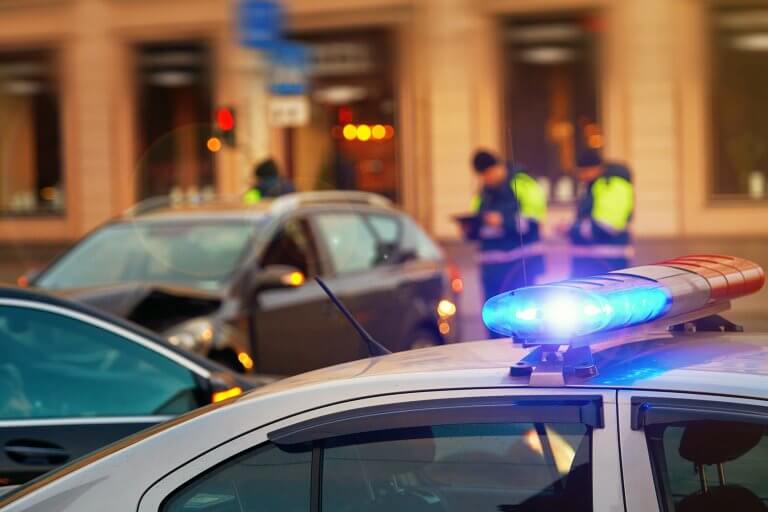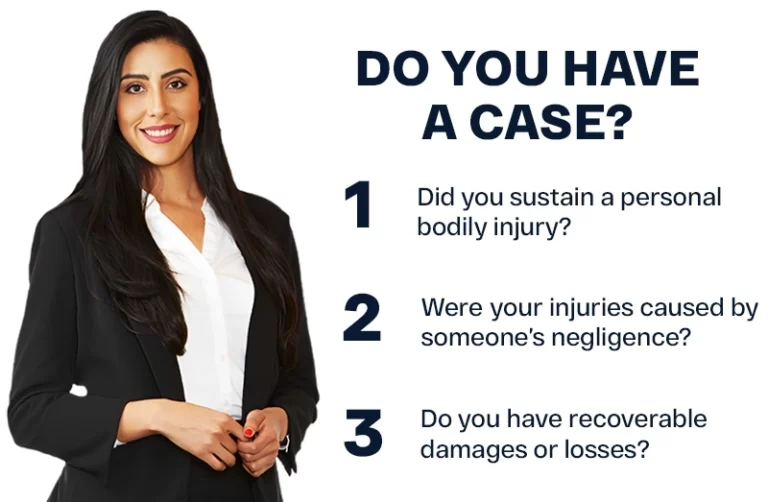California Failure to Yield Accident Attorneys
- PAY NOTHING UPFRONT
- OVER $0 BILLION RECOVERED
- ZERO-FEES UNTIL WE WIN
We’ll review what happened and tell you what options may be available.
Or, get LIVE help now — call our free 24-hour accident hotline at (888) 488-1391
Our California Failure To Yield Accident Attorneys Are Ready To Discuss Your Case
All drivers must obey traffic laws and comply with traffic signs and signals. They also must be familiar with and obey right-of-way laws in whatever state they are operating a motor vehicle in. Some drivers fail to do so due to driving under the influence, distraction, speeding, or aggression. Their actions morph intersections into hazards and cause devastating accidents. If you or someone you love became a victim of one of these drivers, reach out to our experienced California failure to yield collision attorneys at our injury law firm. They can help you pursue compensation for your injuries.
Liability For Failure To Yield Accidents In California
A driver could be negligent if traffic laws designate the right of way, and they fail to yield when they should.
California drivers can be held liable if:
- A safety law or regulation addresses the issue.
- The driver violated the safety statute or regulation.
- The violation is the proximate cause of the other individual’s injuries.
- The injured individual is a member of the class of people protected by the safety statute or regulation.
Your California failure to yield collision lawyers can show these four points exist, and the statutory violations can help establish negligence. The negligence doctrine is beneficial in helping the injured person seek liability.
(No guarantee of outcome. Results displayed were dependent on unique facts of that case, and different facts will bring different results.)
Damages In Failure To Yield Accidents
The damages that may be available for victims may be different. The damages will vary based on who is involved in your failure-to-yield accident and the extent of your injuries. Imagine that you and another vehicle come to the intersection at the same time.
You are on the right. The other driver is unaware that there is a rule giving you the right of way and proceeds to enter the intersection when you rightfully do so; the other car T-bones your vehicle, causing you to sustain catastrophic injuries. Your California failure to yield collision attorney can help you assess your losses after the accident, which includes things you used to do and enjoy but can no longer do after your injuries.
Maybe you played in a softball league, went ice skating with your children every weekend, or worked at a landscaping company doing physically demanding work. Now you cannot participate in these activities because the T-bone accident caused you to break your leg and pelvis. In such cases, non-economic damages, such as loss of enjoyment of life, may be available.
The Right Of Way As Defined By California Law
There are several codes and statutes that address California’s right-of-way laws. For example, California Civil Jury Instruction 701 states that “When the law requires a [driver/pedestrian] to ‘yield the right-of-way’ to [another/a] [vehicle/pedestrian], this means that the [driver/pedestrian] must let the [other] [vehicle/pedestrian] go first.” However, it goes on to say that “Even if someone has the right-of-way, that person must use reasonable care to avoid an accident.”
These jury instructions are used in combination with the following vehicle codes to determine the right-of-way in specific circumstances:
California Vehicle Code 21800: This is the primary statute that applies to the conduct of drivers in and around intersections that aren’t controlled by traffic lights, stop, or yield signs in California. Under the following circumstances, drivers must yield the right-of-way:
- Motor vehicles approaching an intersection must yield to cars that have already entered the intersection from another way.
- If two vehicles arrive at the intersection simultaneously, coming from different directions, the driver on the left should yield to the driver on the right except where roadways dead-end into another. If so, the driver on the ending highway must yield to the driver on the ongoing highway.
- Intersections that are controlled by stop signs in every direction, or if the intersection has malfunctioning or dead traffic lights, the driver on the left should yield to the driver to their immediate right.
California Vehicle Code 21801: (a) a driver who wants to either turn left or make a legal U-turn needs to yield to all traffic traveling in the opposite direction and not begin or continue to turn until such traffic is a safe enough distance away to do so; alternatively, subsection (b) states that if a motorist is making a left or U-turn and has appropriately yielded, turned on their signal, and initiated their turn, the forthcoming traffic must yield the right of way to the motorist who is turning.
According to California Vehicle Code 21802: “The driver of any vehicle approaching a stop sign at the entrance to, or within, an intersection shall stop as required by Section 22450. The driver shall then yield the right-of-way to any vehicles which have approached from another highway, or which are approaching so closely as to constitute an immediate hazard, and shall continue to yield the right-of-way to those vehicles until they can proceed with reasonable safety.
(b) “A driver having yielded as prescribed in subdivision (a) may proceed to enter the intersection, and the drivers of all other approaching vehicles shall yield the right-of-way to the vehicle entering or crossing the intersection.”
California Vehicle Code 21804: Requires all vehicles about to enter a roadway from a side street, parking lot, or alleyway to stop for traffic already on the roadway and not move on to the road until safe to do so. It also requires vehicles to yield to cars that have lawfully entered the roadway and allow them to move safely onto the roadway.
California Vehicle Code 21805: Mandates that motorists yield for horses at publicly designated equestrian crossings.
California Vehicle Code 21806: Drivers must yield the right of way to all emergency vehicles, like police cars or ambulances with sirens going and at least one emergency light lit for a distance of 1,000 feet from the front of the approaching vehicle. Additionally, they must maneuver to the right-hand curb and allow those vehicles to pass.
California Vehicle Code 21807: The rule states the following: “The provisions of Section 21806 shall not operate to relieve the driver of an authorized emergency vehicle from the duty to drive with due regard for the safety of all persons and property.”
California Vehicle Code 21950: Describes the duty of a driver to yield to a pedestrian crossing a road either “lawfully within a crosswalk or within any unmarked crosswalk at an intersection.”

Common Places Where Failure To Yield Accidents Occur
Intersections are the most common part of the roadway where failure-to-yield accidents happen. However, they can occur in many different locations. Keep in mind that almost every time a vehicle moves forward, the risk of a failure-to-yield accident is present. Failure to yield accidents can also happen:
- When a car is exiting a driveway onto the main roadway.
- When a vehicle is making a right or left turn into a driveway from the roadway.
- When a vehicle is turning left, and another vehicle is going straight through an intersection.
- When a car is turning right, and there is a pedestrian in the crosswalk.
- At a two- or four-way stop sign.
No matter the circumstances surrounding your accident, a California failure to yield collision attorney can help you get to the bottom of what happened and help pursue compensation for the injuries you sustained.
Causes Of Failure To Yield Collisions
Failure-to-yield collisions are sometimes due to one or both drivers not understanding who has the right of way. For instance, two drivers who come to a stop at a four-way stop sign might think they have the right of way. They both proceed through the intersection, causing an accident. However, many other factors can cause failure to yield collisions, such as:
- Distracted driving
- Speeding
- Driving aggressively
- Driver intoxication or impairment
- Driver fatigue
In some cases, there may be no excuse for drivers who cause these types of accidents. It is the job of your California failure to yield collision attorneys to evaluate the factors that contributed to your accident and assess which parties may be legally responsible.
Examples Of Frequent Failure To Yield Accidents In California
More than a dozen negligent choices can cause failure to yield collisions. These include failing to yield:
- When leaving a side street or parking lot.
- To oncoming traffic when making a left turn.
- To emergency vehicles when their sirens are in use.
- To drivers who have the right-of-way at a stop sign.
- To bicyclists or pedestrians who legally have the right of way.
- To other drivers when merging onto the freeway.
No matter how you become a victim of a failure to yield accident, you may benefit from hiring California failure to yield collision lawyers to protect your interests. They can present your case with the available evidence and demonstrate how the accident led to your injuries.
Failure To Yield Collisions Claims Can Be Complicated
It’s relatively easy to distinguish between the accident victim and the negligent driver in most car crashes. Unfortunately, failure-to-yield accidents are typically the opposite. If one driver fails to yield to the driver who has the right of way, that driver may have no other option but to hit the vehicle that didn’t yield. This usually makes the car accident claim more complex, which is why many injured individuals turn to a lawyer for help.
As unfair as it seems, the crash victim must prove to the insurance company that they were not at fault and that the accident occurred due to the other driver’s failure to yield. By hiring experienced failure-to-yield collision attorneys in California, the victim can have legal support to navigate the legal intricacies of their case.
Injured In A Failure To Yield Accident? Call Our Injury Lawyers!
Skilled California failure to yield collision lawyers in our injury law firm can assist victims in seeking damages after such incidents. We can evaluate your situation and guide you on the appropriate legal steps based on the specifics of your case. Our team serves clients throughout California, including individuals in San Francisco, Riverside, San Jose, San Diego, Sacramento, and Sherman Oaks.
Call our team here at Arash Law, led by Arash Khorsandi, Esq., today at (888) 488-1391 or fill out our online contact form. Schedule a free initial case review with one of our compassionate California failure to yield collision lawyers. We work on contingency, which means you don’t have to pay any upfront legal fees. In this arrangement, our team will only receive payment if we recover compensation for you. We can explain this fee structure during the free initial consultation.

